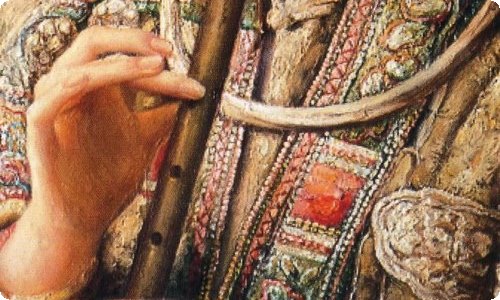
在日常生活或是工作学习中,许多人对一些广为流传的段落都不陌生吧,多数段落包括不止一个句子或句群,叫多句段,中文段落开头前一般空两个格。那么都有哪些类型的段落呢?以下是小编帮大家整理的段落翻译范文1-,欢迎大家借鉴与参考,希望对大家有所帮助。
段落翻译范文1-1
中国菜誉满天下,为全世界人所喜爱。在中国饮食文化中,有一个有趣的观念—“食补”。食补(tonic food)是指通过食用某些食物后以增进健康,或防止疾病,尤其是在人容易生病的`时候。举个例子,在过去的习俗里,产妇在产后一个月内每天都要吃麻油鸡(sesame—oil chicken)。人们认为这道菜对肌肉有益,并能减轻疼痛、促进循环、刺激排汗和暖和身子。
参考译文:
Chinese cuisine is widely known and enjoyed in all four corners of the world. In Chinese food culture, there is one interesting concept concerning Chinese food—the ancient custom of “tonic food”. Tonic food is food which is consumed to improve one’s well-being, or stave off sickness, particularly at times when one is more prone to illness. For instance, it was once the custom for new mothers to eat sesame—oil chicken every day for the first month after giving birth. It was believed that this dish would benefit the muscles, reduce pain, improve circulation, stimulate sweating, and warm the body.
段落翻译范文1-2
京剧是中国式戏剧的.一种,被看作是中国文化的瑰宝。京剧集合动作、歌唱、对话和独白、杂技、舞蹈为一体,讲述一个故事或刻画不同人物并表达他们的情感,如开心、愤怒、伤心、喜悦、惊奇、害怕和悲痛。京剧里一般有四类角色:生(男子)、旦(青年女子)、净(花脸,男)、丑(小丑,男女皆有)。无论忠奸、美丑或是好坏,都能在京剧中得以生动的表现。
Peking opera or Beijing Opera is a kind of Chinese opera which is (widely ) regarded as one of the cultural treasures of China. Peking Opera is a synthesis of stylized action, singing, dialogue and soliloquy, acrobatic fighting and dancing to represent a story or depict different characters and express their feelings of gladness, anger, sadness, happiness, surprise, fear and grief. Generally, in Peking Opera there are four main types of roles: sheng(male), dan(young female), jing(painted face, male), and chou(clown, either male or female). Whether they are loyal or treacherous, beautiful or ugly, good or bad, the characters can be vividly manifested in Peking Opera.
段落翻译范文1-3
传统上说,中国人在60岁以前对生日并不太注意。六十大寿被认为是人生中极为重要的一次,因此经常要举行盛大的庆祝。在此之后每隔10年就要举行一场生日庆祝,也就是70岁、80岁等,直到去世为止。大体上说,人的年龄越大,庆祝的场合就越隆重。生日经常是由成年子女来为他们的父母庆祝,以表现出对父母的尊敬并就父母为他们所做的'一切表达自己的谢意。
参考译文:
Traditionally, Chinese people do not pay a lot of attention to birthdays until they are 60 years old. The 60th birthday is regarded as a very important point of life and therefore there is often a big celebration. After that, a birthday celebration is held every ten years, that is the 70th, the 80th, etc, until the person’s death. Generally, the older the person is, the greater the celebration occasion is. It is often the grownup sons and daughters who celebrate their elderly parents’ birthdays to show their respect for them and express their thanks for all that they have done for their children.
段落翻译范文1-4
中国风筝主要分为两大类:飞翼可拆开(detachable)类和飞翼固定类。第一类风筝的飞翼可以拆下,放入箱内,既便于携带,又用于礼物送人。第二类的飞翼是固定的.,龙骨不能拆开,但是飞得更高、更好、更稳。根据设计和规格等分类,中国风筝可以分为300多种,例如:人文、鱼、昆虫、鸟、动物,等等。在尺寸上,直径为30厘米至304米不等。
参考译文:
Chinese kites fall into two major categories: those with detachable wings and those with fixed wings. The former can be taken apart and packed in boxes. Easy to carry about, they make good presents. The second category refers to those with fixed, non-detachable frames; they fly better and higher, given a steady wind. Classified by designs and other specifications, there are no less than 300 varieties, including human figures, fish, insects, birds, animals and written characters. In size, they range from 304 meters to only 30 centimeters across.
段落翻译范文1-5
在中国,礼物在上门拜访时是必不可少的,但是它并没有那么复杂。花卉、普通水果以及食品通常就行了。至于酒,你可得弄清楚主人是不是喜欢喝酒。在午饭时间,主人会让你多吃点东西或多喝点酒。如果你不想让他们失望的话,你就可以根据你的.情况多来一点。如果你真的是酒足饭饱了,你最好直接谢绝,否则好客的主人会继续往你的碗里添菜。
参考译文:
In China, a gift is necessary when visiting a family. But it is not so complex. Usually, flowers, common fruits and food are okay. As for alcohol, you had better check whether the host enjoys it. During lunch time, hosts will ask you to have more food or alcohol. If you do not want to disappoint them, you can have a little more according to your situation. If you are truly full, you had better refuse directly, otherwise, the hospitable hosts will continue to refill your bowl.
段落翻译范文1-6
筷子的发明反映了古代中国人的智慧。一双筷子,虽然看起来简单,却能夹起(nip),挑起,撕裂(rip)和搅拌食物。在古代,筷子叫做“箸”。筷子的发展也经历了很长的历史。在夏朝初(公元21世纪到前16世纪),筷子的形状也在发展中。筷子只有在商朝时(公元前16世纪到前11世纪)才成为两根等长的`棍子。商朝后期,商纣王命令他的工匠用象牙做筷子,被看作是中作饮食史早期最昂贵的筷子。
参考译文:
The invention of chopsticks reflects the wisdom of Chinese ancient people. A pair of chopsticks, though they look simple, can nip, pick, rip and stir food. In ancient times, chopsticks were called “Zhu”. Development of chopsticks has experienced a long history. Early in Xia Dynasty (21st—16th century B.C.), the shape of chopstick was still in development. Chopsticks only became two sticks of the same length in the Shang Dynasty (16th – 11th century B.C.). In the late Shang Dynasty, the tyrannical King Zhou ordered his craftsmen to make chopsticks from elephants’ teeth, which were seen as the most luxurious chopsticks in the early history of Chinese food culture.




